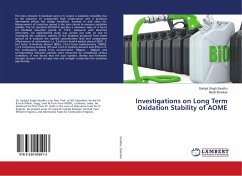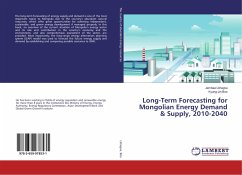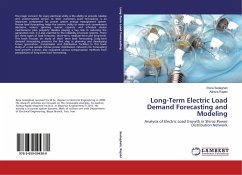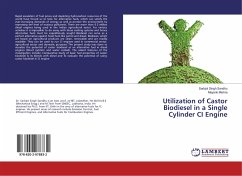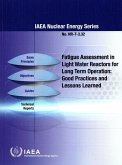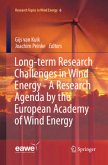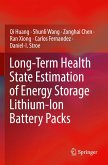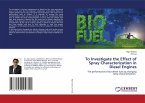The main obstacle in biodiesel used in IC engine is oxidation instability due to the presence of unexpected high unsaturation and it produces detrimental effects like sludge formation, increase in acid value etc. Measurement of Induction period is the sole criteria to measure oxidation stability. The EU standard (EN14214) specifies a minimum value of 6 hours for biodiesel induction period at 110°C, measured with Rancimat instrument. An experimental study was carried out with an aim to investigate the oxidation stability of the biodiesel produced from bitter apricot oil & evaluate the optimal concentration level and comparative effectiveness of antioxidants i.e. 2,6-di-tert butyl-4-methyl phenol (BHT), 2-tert butyl -4-methoxy phenol (BHA), 2-tert butyl hydroquinone (TBHQ), 1,2,3 tri-hydroxy benzene (PY) and 3,4,5-tri hydroxy benzoic acid (PG) on it. The antioxidants dosed from concentration 100ppm - 300ppm and corresponding induction periods were measured by considering various conditions. It was found that the acid number, density and kinematic viscosity increase with storage time and sunlight accelerates the oxidation significantly.
Bitte wählen Sie Ihr Anliegen aus.
Rechnungen
Retourenschein anfordern
Bestellstatus
Storno

